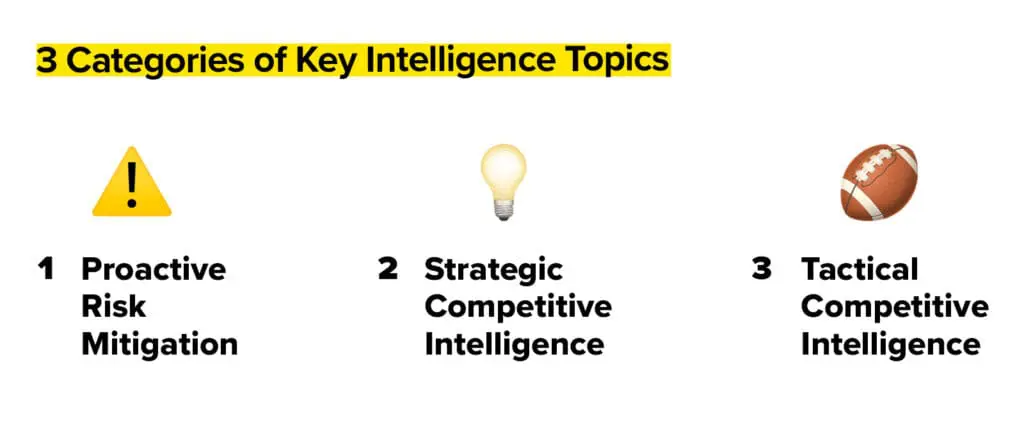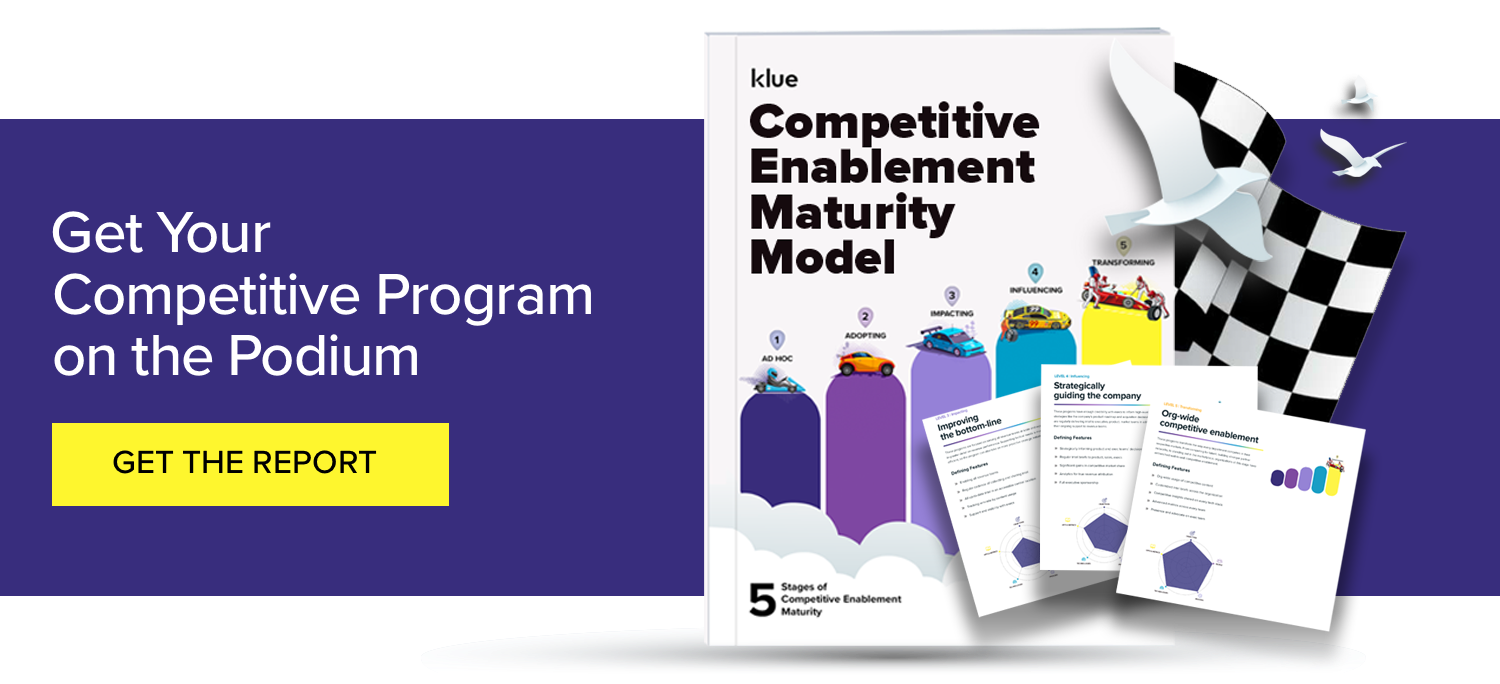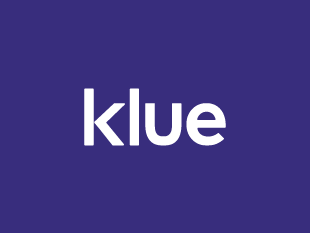Klue Compete
The Competitive Enablement Platform
Learn More
FIND OUT MORE >

Building a competitive intelligence program from scratch can be daunting. That’s why getting a handle on the right key intelligence topics (KITs) is critical.
Knowing the best sources of internal and external competitive intelligence is certainly a good start. But then what do you do with all of that information?
Getting a handle on the key intelligence topics that matter most to your company will give you the direction you need to start building competitive intelligence effectively.


Once you do have a good grasp, you can start asking key intelligence questions (KIQs) to dig deeper into the KITs to really form the basis for the strategic and tactical enablement that will make you a hero within the organization.
The most relevant intelligence topics for any given business will depend on the factors that business is facing.
However, looking at key intelligence topics with these three categories in mind will give you the initial parameters you need before getting specific.


This category is all about getting a feel for early warning signs on threats and opportunities that might affect your business.
Macro-economic factors, recent mergers and acquisitions in your space, a change in government policy can all have a serious impact on your company’s overall health.
By keeping tabs on press releases, media articles, social media and other news-and-analysis-of-the-day type materials, you’ll be setting yourself for success when it comes to detecting early warning signs.
While proactive risk mitigation is most often leveraged in the present, strategic intelligence casts an eye towards the future.
This key intelligence topic is all about informing your leadership team with the data and analysis they need to build an effective five-to-ten year strategy.
For many, practicing this type of competitive intelligence is the pinnacle of their career. But as we’ll see in the third category, if you don’t nail the tactical side of competitive intelligence, you will likely never get to the strategic table.
Fighting the everyday battles on the ground is where your competitive intelligence efforts will be most keenly — and most quickly — felt.
This key intelligence topic involves researching your competitors and arming your internal teams with the intel they need to beat the competition.
Whether it’s sales battecards, training sessions, or cheat sheets, the tactical competitive intel you share is what will get you on the map and set your competitive enablement program up for success.
Once you’ve understood the three key intelligence topics, key intelligence questions help business objectives before you set your supporting strategy.
For example, if a key business objective is to improve your market presence in a particular category, you’ll want to measure your competitive win rates against the top competitors you face and ask questions about this.
Key Intelligence Questions help define user needs by outlining ‘the What, the Why, and the Who’ of your audience. Ultimately, they provide a roadmap of what competitive content you need to create that your end-users will actually use.
Think of key intelligence topics as cornerstone content: the categories of interest you will build your competitive intelligence strategy upon.
For example, if you’re interested in the product your competitor is launching next quarter, that’s the key intelligence topic.
From that starting point, you can then start to formulate the key intelligence questions you’ll want to ask, like:
Once you nail down those questions (and answer them!) you’ve now got real, usable competitive intel that is far more applicable for your sales reps to use when the competitor’s product launch comes up in a deal.
Key Intelligence Topics are successful in companies that have created a culture of competitive intelligence.
They define priorities so that resources and time are spent on issues that are timely and of value for both effective sales and proactive management.
Mature competitive enablement programs at major enterprise companies have their KITs and KIQs established. But any company of any size can and should start thinking about the key intelligence topics to explore and questions to ask.
It all has to start somewhere — why not right where you are today?




Competitive Enablement
The topic of Large Language Models (LLMs) has a lot of confusion. Here's what you need to know about how Klue is working with them.


Competitive Enablement
Product Marketing
If your competitive intel game is too strong for automation, too pure for data privacy, and too rebellious for accuracy — then Klue AI is probably not for you.


Let’s do it. Tell us a bit about yourself and we’ll set up a time to wow you.
Let's do it. Tell us a bit about yourself and we'll set up a time to wow you.
XLet's do it. Tell us a bit about yourself and we'll set up a time to wow you.
XSubscribe to get our latest AI functionality and news in your inbox.
XOur Buyer Pulse feature, set to launch in Q2 2024, offers valuable insights into the factors influencing buyer decisions in your pipeline. By signing up for the waitlist, we can better gauge interest and proactively engage with you to streamline the setup and integration process before the feature becomes widely available.
X